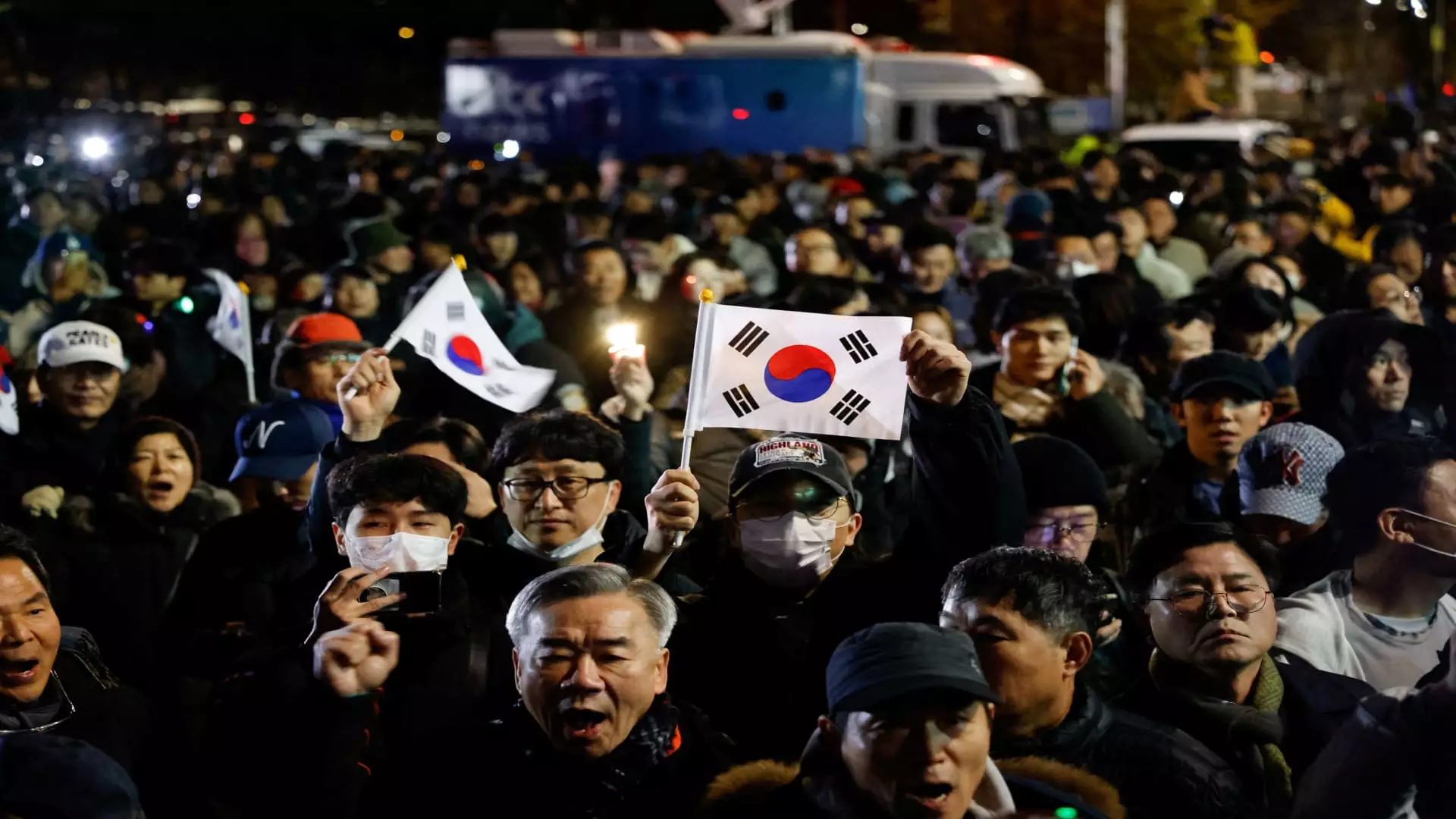The recent events in South Korea have kicked up a storm of political upheaval surrounding President Yoon Suk Yeol. His administration is tangled in controversy after an ill-fated attempt to impose martial law, which has led to widespread disappointment among citizens and severe criticisms from opposition parties. This bold yet disastrous move has drawn ire, not just from the general populace but also from military officials and even factions within his own party, the People Power Party (PPP). As the nation grapples with the implications of such an authoritarian maneuver, Yoon finds himself under immense pressure, facing intense scrutiny and an uncertain political fate.
In a startling announcement, the South Korean justice ministry confirmed that a travel ban has been imposed on Yoon. This action underscores the severity of the situation, as it signals a growing acknowledgment that the president is now embroiled in a potential criminal investigation concerning his past actions related to the proposed declaration of martial law. The prohibition against foreign travel is emblematic of his dwindling power, stoking fears about the broader ramifications for governance in South Korea.
Yoon’s recent apology for the failed martial law attempt appears insufficient to quell the dissent simmering among military leadership. Reports indicate that senior officers are increasingly unwilling to pledge their loyalty to him, revealing a deep-seated crisis of confidence. In a shocking shift, the PPP has publicly stated its intentions to form a task force aimed at navigating the president’s eventual resignation. This admittance of instability within Yoon’s own coalition reveals how pervasive and dangerous the fallout from the martial law declaration has become for national governance.
The vice president of the PPP, Han Dong-hoon, confirmed that discussions are underway to delegate presidential powers to Prime Minister Han Duck-soo, an action that shifts the political landscape into potentially uncharted and systemic constitutional chaos. While Yoon still retains the formal title of commander in chief, as indicated by the defense ministry, there is an underlying fear that such authority is being undermined, effectively putting the country’s leadership in limbo.
A significant aspect of this evolving political crisis is the legitimacy of authority. Legal experts have expressed concern about the constitutionality of the PPP’s recent strategies, including moving presidential powers to an unelected prime minister. Unlike the vice presidency in the U.S., which carries an elected mandate, the South Korean prime minister operates under a weaker democratic legitimacy. This lack of public electoral backing raises questions regarding the structure of authority in a nation that prides itself on democratic values, intensifying calls for either impeachment or Yoon’s resignation.
Opposition parties, led by the Democratic Party (DP), have been vocal in their demands for accountability, suggesting not only that Yoon lack the authority to control military forces but also that he faces the possibility of arrest for his actions related to the martial law exercise. Political leaders have remarked on the urgency of addressing this crisis, noting its potential to inflict irreversible harm on the nation, particularly at a sensitive economic juncture.
As the political events unfold, South Korea’s economy—considered the fourth largest in Asia and a key player in global memory chip manufacturing—stands on precarious ground. Economic stability is crucial, especially with regulatory bodies promising to implement plans designed to secure financial markets amidst this turmoil. The military’s involvement in domestic politics only exacerbates the situation, as demonstrated by the recent disclosures regarding emergency military orders, leading to controversy and raising alarm among allies.
Internationally, the response to these developments from the United States has been swift, with Defense Secretary Lloyd Austin canceling travel plans to South Korea. This decision not only reflects discontent with Yoon’s governance but also indicates a broader concern regarding the implications of South Korea’s internal policies on regional security dynamics.
As President Yoon Suk Yeol navigates this unprecedented turbulence, several factors will determine his political survival. The possibility of his resignation, as advocated by various sectors of society, looms large. Such action could facilitate a transition of power, but it also raises essential questions about the future stability of the South Korean government. The ongoing criminal investigation, coupled with a fracturing political landscape, suggests that Yoon must address these challenges head-on or face potential removal from office.
The outcome of this political crisis will shape not only the future of Yoon’s presidency but the integrity of South Korea’s democratic framework. Whether through resignation, prosecution, or a resurgence of authority will ultimately define the course of governance in a country facing critical geopolitical tensions, particularly in light of North Korea’s belligerent actions and the implications they pose to regional stability.


Leave a Reply